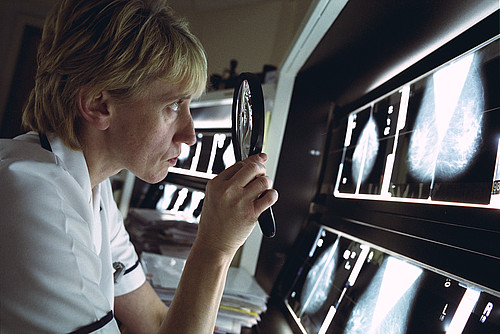
Serena Nik-Zainal and Helen Davies, from our Early Cancer Institute, are part of a global team of researchers funded through Cancer Grand Challenges, taking on a challenge to distinguish between people with DCIS who urgently need therapy and people who could safely avoid treatment.
DCIS, the presence of abnormal but non-invasive cells in the breast milk ducts, is harmless in most people – but some people with the condition will develop invasive breast cancer.
DCIS has long been assumed to be the precursor of any invasive breast cancer that follows. And because it’s impossible to predict whether a person will go on to develop invasive breast cancer, treatment is generally recommended for all cases.
As a result, thousands of people with DCIS undergo unnecessary surgery, radiation and hormone therapy each year.
The Cancer Grand Challenges PRECISION team are looking for biological clues – known as biomarkers – that could indicate whether a person with DCIS is likely to develop invasive breast cancer.
The team have analysed data and samples from well-annotated cohorts of people with DCIS from the UK, the US and the Netherlands, making it the largest cohort of its kind in the world.
Their findings, published in Nature Genetics, show that 1 in 5 of these subsequent cancers are unrelated to the initial lesion – and instead are new primary tumours.
These paradigm-shifting findings could change the way people with DCIS are treated in the clinic.















